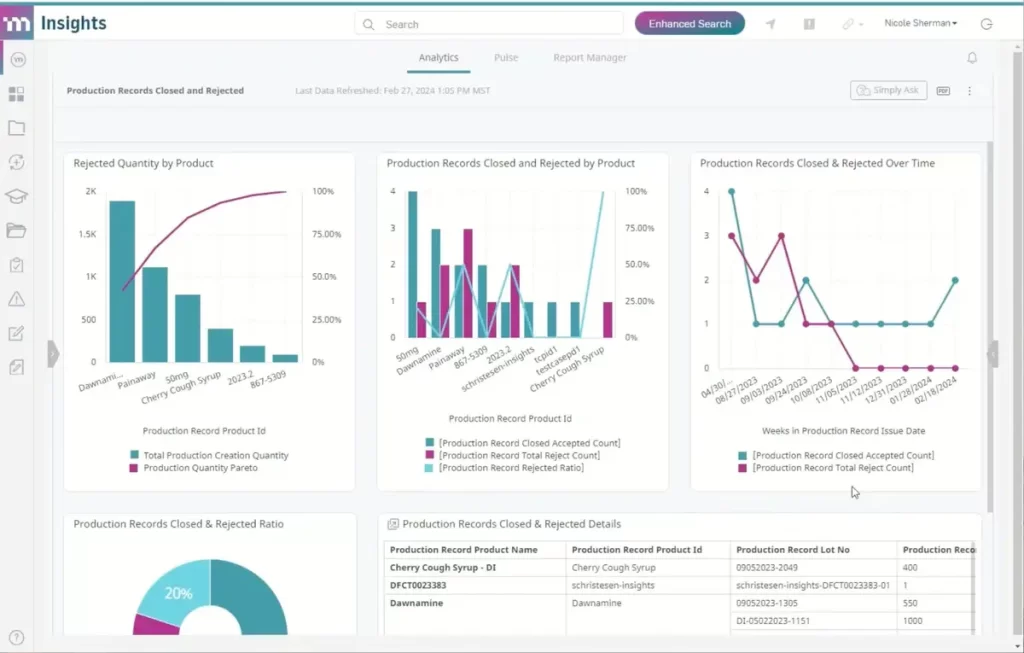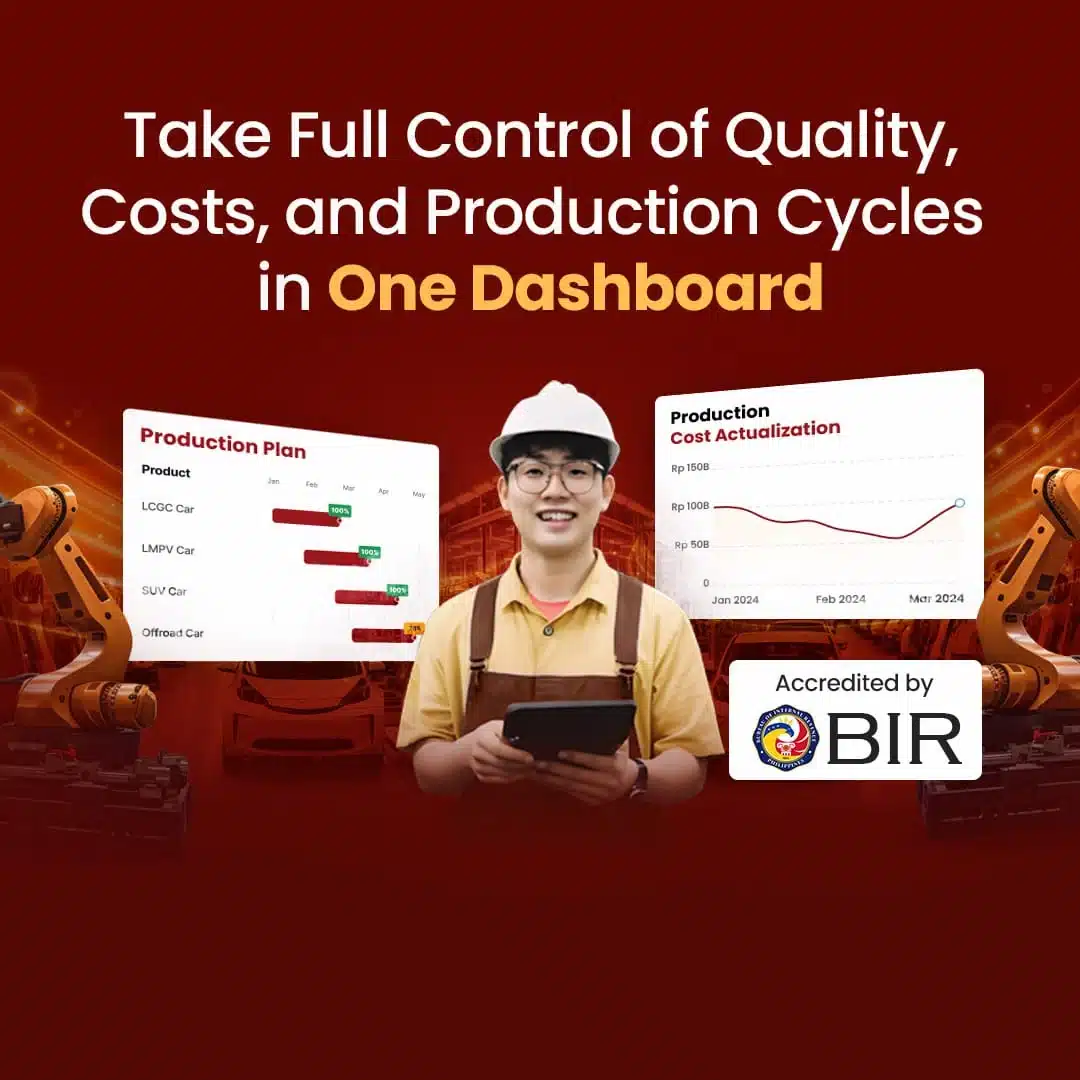Are you facing scheduling mix-ups, stock shortages, or production slowdowns? You’re not alone. That’s why businesses are using production planning software to counter these issues.
But why, though? It helps you take charge by automating scheduling, managing resources, and keeping inventory in check. The result? Fewer mistakes, faster operations, and a whole lot less stress.
With so many options out there, how do you pick the right one? You should check out HashMicro Production Software, since not only is it capable for planning your entire production, it can also connect with all your machinery to monitor every stage of production effectively.
However, we know that every manufacturer has different needs. So, we also round up other 12 best production planning software for manufacturing in 2025, here are the shortlist.
- HashMicro Production Planning Software: Best overall with AI-driven automation and real-time tracking.
- NetSuite: A cloud-based ERP with advanced production planning tools.
- Odoo Production Planning Software: An open-source solution with flexible manufacturing workflows.
- Sage 100 Production Planning Software: Designed for small to mid-sized manufacturers needing inventory control.
- ClickUp: A project-based platform that automates tasks and enhances collaboration.
- Connecteam Production Planning Software: A mobile-friendly tool for workforce management and scheduling.
- Fishbowl: Offers inventory and production tracking.
- Katana Manufacturing Production Planning Software: Helps small manufacturers with real-time inventory control.
- Wrike: A team collaboration tool with task management for production planning.
- Epicor Kinetic Manufacturing Production Planning Software: Supports large-scale manufacturing automation.
- Infor LN Production Scheduling Software: Handles complex production scheduling for global operations.
- MasterControl Production Planning Software: Focuses on compliance-driven industries with structured planning.
Key Takeaways
|
Table of Content
Content Lists

What is Production Planning Software
Production planning software is a tool designed to optimize the planning and scheduling of production activities. It automates processes, allocates resources efficiently, and coordinates tasks to ensure timely product delivery.
Mass production thrives with production planning software, which optimizes resources and schedules efficiently. Integrating mass production into a structured plan helps companies meet high demand smoothly, ensuring on-time delivery and maintaining consistent product quality.
Benefits of Production Planning Software
By providing a clear production plan example, businesses can visualize and streamline their operations more effectively. Implementing production planning software can offer numerous benefits for businesses, including:
- Cost reduction: Optimizes the use of materials and machinery, leading to significant cost savings in production processes.
- Increased efficiency: Automates scheduling and resource allocation, reducing the time spent on planning.
- Enhanced accuracy: Using precise algorithms to manage production schedules and inventory minimizes human errors.
- Better inventory management: Provides real-time visibility into inventory levels, helping to prevent overstocking and stockouts.
- Scalability: Easily adjusts to changes in production volume and can accommodate growth without sacrificing performance.
- Enhanced customer satisfaction: Improves the ability to meet deadlines and enhances product quality, leading to higher customer satisfaction and loyalty.
- Compliance and traceability: Helps ensure compliance with industry standards and regulations and provides traceability throughout the production process.
12 Best Production Planning Software for Manufacturing
Choosing the right PPIC and scheduling software is crucial for optimizing manufacturing processes. Below, we’ve curated a list of the 12 best production planning software designed to enhance efficiency, accuracy, and productivity in your operations.
1. HashMicro Production Planning Software
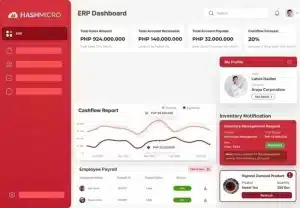
HashMicro Production Planning Software is a tool tailored for manufacturing operations, aimed at streamlining production workflows and improving efficiency. It automates scheduling, manages inventory, and coordinates resources to optimize the entire production process.
Moreover, HashMicro offers a free product tour and consultation, allowing potential users to explore their software firsthand and see how it can be tailored to your specific business needs. This no-obligation approach ensures that you make an informed decision with confidence.
Trusted by top-notch companies such as Forbes, Danone, and Dilmah, HashMicro has proven its ability to meet diverse business needs. These partnerships underscore HashMicro’s capacity to provide scalable, innovative solutions that drive efficiency and growth.
Features:
- Manufacturing Production Scheduling: This feature optimizes resource allocation and task scheduling to ensure efficient production flow. It enables precise timing and sequencing of manufacturing activities to meet production deadlines.
- Manufacturing Requisition Planning: The software manages and streamlines the procurement of raw materials based on production needs, ensuring materials are available when needed without overstocking or shortages.
- Forecasting Based on Demand History: HashMicro uses historical data to predict future demand, enabling manufacturers to adjust production levels proactively. This helps maintain optimal inventory levels and reduce costs.
- Secret Recipe / Bill of Materials (BoM): This feature centralizes and secures your manufacturing formulas or recipes. Detailing the specific materials and quantities ensures consistency in product quality and simplifies the production process.
- Made-to-Order Completion Forecast: This tool provides accurate predictions on project completion times for custom orders, allowing manufacturers to give reliable delivery estimates to customers and plan their production schedules accordingly.
- Manufacturing Quality Control: This feature helps identify and rectify defects early in the production process, ensuring that all products meet predetermined quality standards before reaching the customer.
- Finished Goods Production Simulation: HashMicro allows manufacturers to simulate the production process for finished goods, providing insights into potential bottlenecks and inefficiencies.
| Pros | Cons |
|
|
Explore HashMicro’s flexible pricing schemes by clicking the banner below. Discover how their tailored solutions can meet your specific manufacturing needs and budget, ensuring you get the best value for your investment in advanced manufacturing software.
2. NetSuite
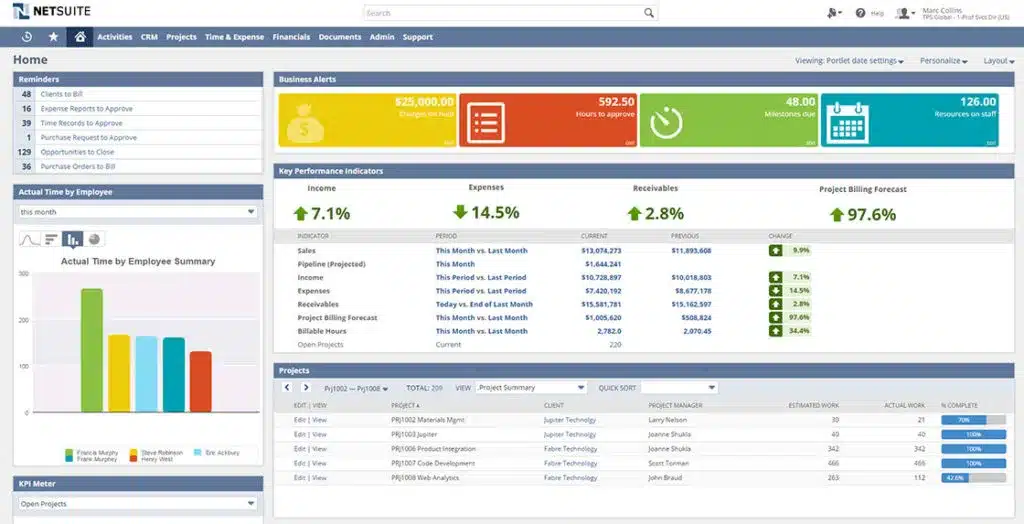
NetSuite offers manufacturing production planning software to streamline production schedules and optimize resource allocation. The software automates the planning process, coordinates activities across departments, and ensures timely completion of production goals.
Features:
- Demand forecasting
- Production scheduling
- Multi-location inventory control
- Work order management
- Reporting and analytics
| Pros | Cons |
|
|
3. Odoo Production Planning Software
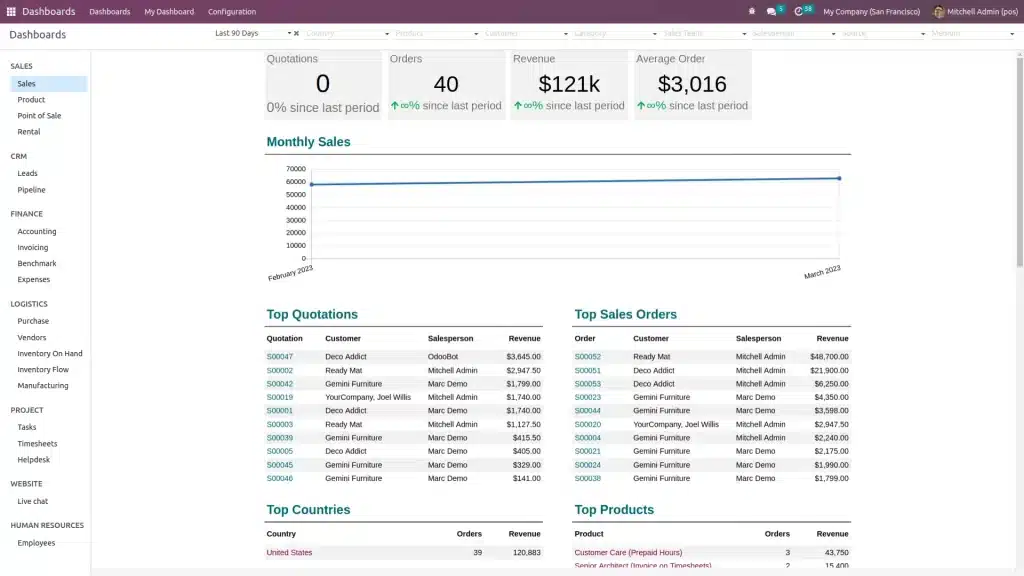
Odoo offers production planning software to streamline and optimize manufacturing processes. It coordinates production schedules, manages material requirements, and tracks operations in real-time, ensuring efficient workflow and resource utilization.
Features:
- Master production schedule
- Real-time simulated operations
- Inventory management
- Bill of Materials (BoM) management
- Production analysis reports
| Pros | Cons |
|
|
4. Sage 100 Production Planning Software
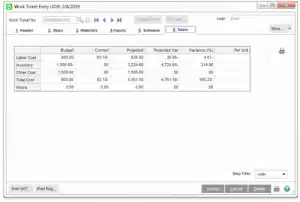
Sage 100 is production planning software designed for manufacturers to enhance efficiency through streamlined production and resource management. It automates task scheduling, optimizes material use, and ensures timely product deliveries.
Features:
- Inventory management
- Bill of Materials (BoM) management
- Work ticket tracking
- Material usage tracking
- Predictive analytics
| Pros | Cons |
|
|
5. ClickUp
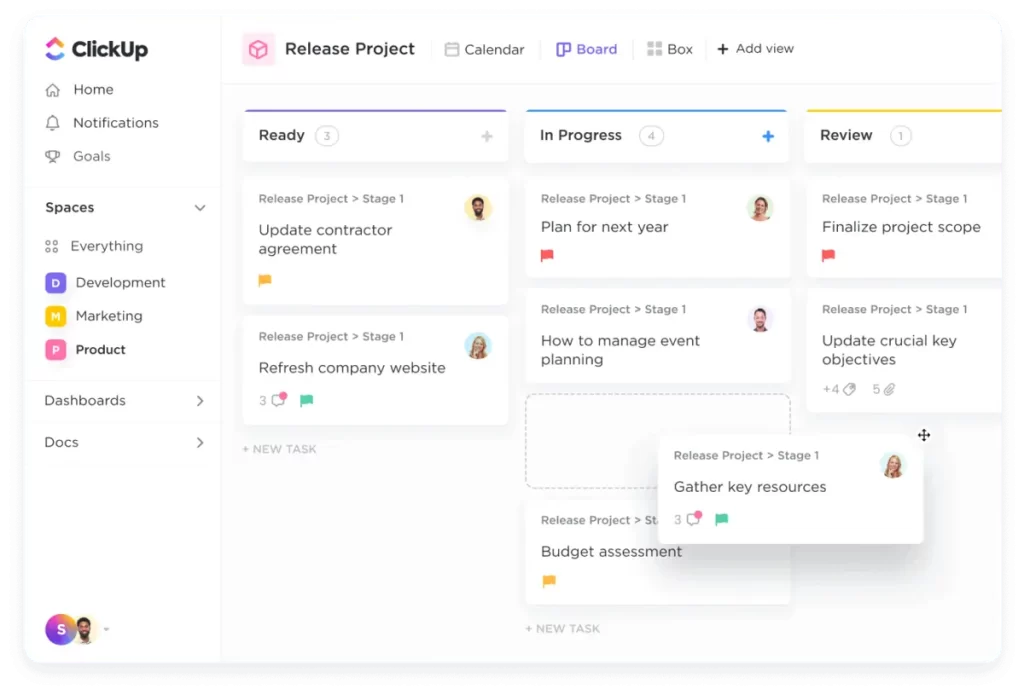
ClickUp offers production planning software designed to optimize manufacturing processes. The software integrates tasks, resources, and schedules into a unified platform. It automates scheduling, tracks progress, and aligns operations with business goals for enhanced efficiency.
Features:
- Production scheduling
- Inventory management
- Quality control tracking
- Task management
- Reporting and analytics
| Pros | Cons |
|
|
6. Connecteam Production Planning Software
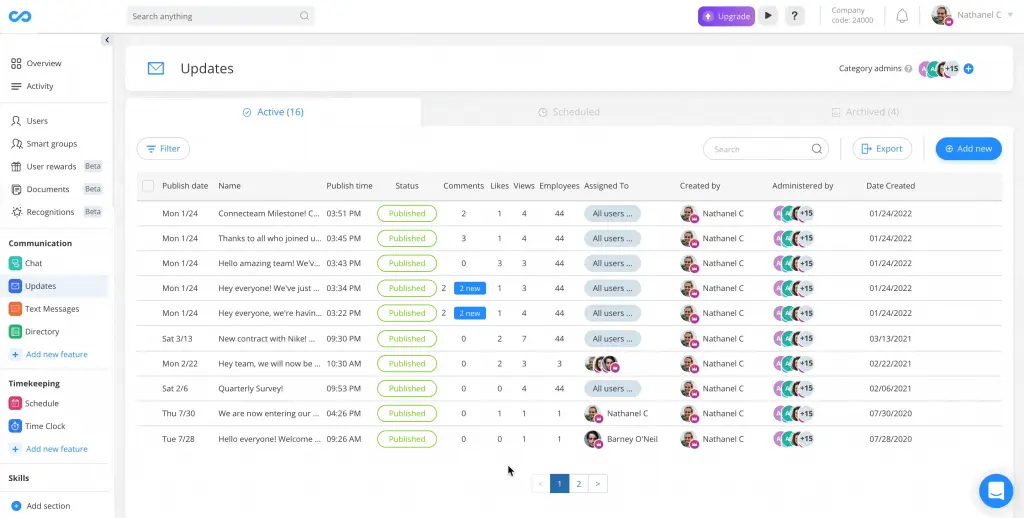
Connecteam is a production planning software focused on simplifying complex production tasks and enhancing operational coordination. It integrates planning, scheduling, and execution, ensuring seamless communication and updates across all levels of production.
Features:
- Time tracking
- Staff scheduling
- Task management
- Attendance reporting
| Pros | Cons |
|
|
7. Fishbowl
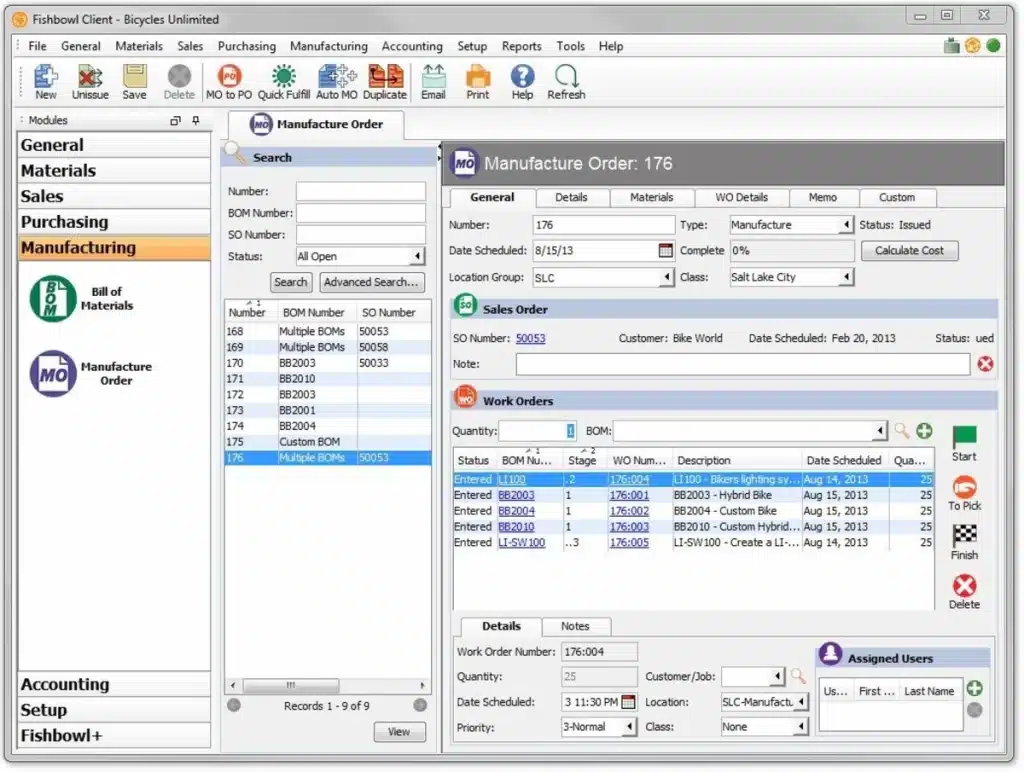
Fishbowl Production Planning Software is designed for manufacturers seeking to optimize production processes and improve workflow efficiency. It integrates with inventory management, automates order processing, and coordinates manufacturing schedules to enhance productivity.
Features:
- Inventory tracking
- Shop floor control
- Barcode scanning
- Warehouse management
- Reporting and analytics
| Pros | Cons |
|
|
8. Katana Manufacturing Production Planning Software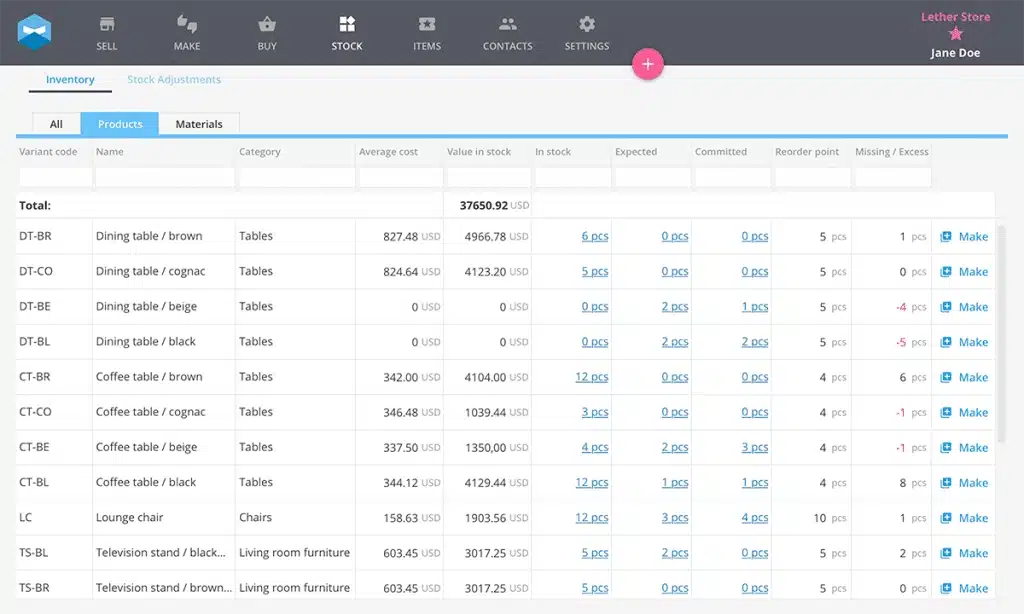
Katana offers manufacturing production planning software for real-time inventory management and workflow optimization. It integrates sales, inventory levels, and production processes in one platform, enabling seamless operation and decision-making.
Features:
- Live inventory management
- Purchase order management
- Production planning
- Shop floor control app
- Bill of Materials (BoM)
| Pros | Cons |
|
|
9. Wrike
![]() Wrike provides production planning software to enhance the efficiency of manufacturing workflows and integrate various production processes. The software offers tools for real-time collaboration, task management, and progress tracking to streamline production schedules.
Wrike provides production planning software to enhance the efficiency of manufacturing workflows and integrate various production processes. The software offers tools for real-time collaboration, task management, and progress tracking to streamline production schedules.
Features:
- Kanban boards, Gantt charts, and project timelines
- Supply chain management
- Resource planning
- Pre-built manufacturing templates
| Pros | Cons |
|
|
10. Epicor Kinetic Manufacturing Production Planning Software
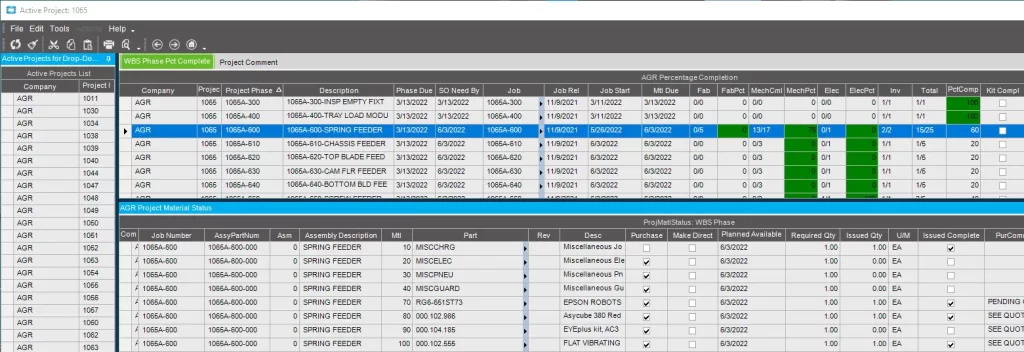
Epicor Kinetic is manufacturing production planning software designed to optimize production processes and enhance operational efficiency. The software integrates real-time data analysis to streamline scheduling, manage resources, and adjust production plans dynamically.
Features:
- Production management
- Supply chain management
- Financial management
- Omnichannel sales
- Business intelligence and analytics
| Pros | Cons |
|
|
11. Infor LN Production Scheduling Software
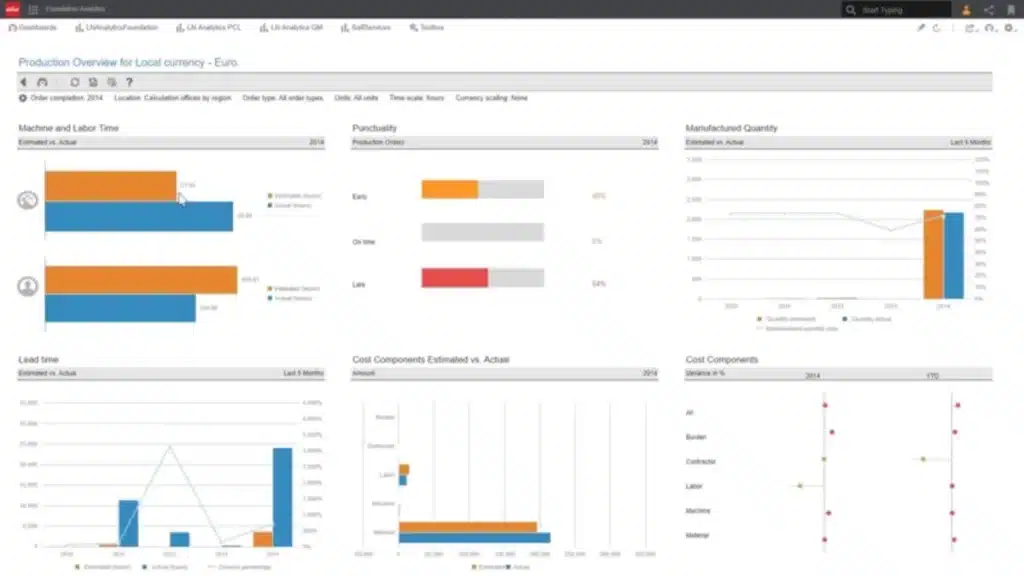
Infor LN is a production scheduling software designed for manufacturing industries, facilitating streamlined production processes. It integrates planning algorithms to schedule and optimize operations, manage resources effectively, and reduce downtime.
Features:
- Manufacturing execution systems (MES)
- Product lifecycle management
- Project management
- Bill of Materials (BoM)
- Capacity planning
| Pros | Cons |
|
|
12. MasterControl Production Planning Software
MasterControl offers production planning software to optimize production processes by automating scheduling, resource allocation, and workflow management. The software integrates seamlessly with operations to coordinate tasks, manage inventory, and ensure timely delivery of products.
Features:
- Bill of Materials (BoM)
- Production scheduling
- Production records
- Quality control management
- Reporting and analytics
| Pros | Cons |
|
|
How to Choose the Best Production Planning Software

Choosing the right production planning software is a critical decision that can significantly impact manufacturing efficiency and overall business success. To help you navigate this choice, we’ve outlined several factors to consider:
- Consider user-friendliness: Look for software that offers intuitive navigation, customizable dashboards, and straightforward data entry. Involving end-users during the evaluation process can help gauge their comfort level with the software.
- Evaluate software features: Look for comprehensive production scheduling tools. Additionally, ensure that the software includes robust inventory management capabilities to manage stock levels efficiently.
- Assess flexibility and customization: Production processes vary across industries and businesses. Choose a production planning software that allows customization to match your unique workflows.
- Check integration capabilities: Ensure the software integrates seamlessly with other business functions, such as inventory management, procurement, and finance. A well-connected ecosystem enhances overall efficiency.
- Evaluate support and training: Consider the vendor’s support services. Is there 24/7 customer support? Are training resources available? Adequate training ensures your team can maximize the software’s capabilities and troubleshoot effectively.
- Read reviews and seek recommendations: Research online reviews and seek recommendations from industry peers. Learn about real-world experiences with the software, both positive and negative. Honest feedback can guide your decision.
By following these steps, you can confidently choose the manufacturing software that will enhance your operations, boost productivity, and drive your business forward. Making an informed decision now will increase efficiency and growth in the long run.
Conclusion
Choosing the right production planning software is crucial for optimizing manufacturing operations and ensuring seamless workflow. Adequate software can streamline scheduling, enhance inventory management, and improve efficiency.
HashMicro Manufacturing Software is designed to meet these needs, offering robust features that cater to various manufacturing challenges. The software provides advanced scheduling, demand forecasting, and comprehensive quality control in one user-friendly platform.
Take advantage of HashMicro’s free demo today to experience the benefits firsthand. This hands-on experience allows you to explore the software’s capabilities and see how it can transform your manufacturing operations.
FAQ About Production Planning Software
-
What software is used for production?
Many businesses use HashMicro Production Planning Software to streamline manufacturing processes. It offers AI-driven automation, real-time inventory tracking, and seamless scheduling to optimize production efficiency and reduce operational costs.
-
What is production planning?
Production planning is the process of organizing and managing the resources, schedules, and tasks required to produce goods efficiently. It works by coordinating materials, labor, and equipment to ensure that production meets demand while minimizing waste and delays.
-
What are the tools of production planning?
AI and machine learning can process large data sets, identify trends, and provide accurate forecasts. Using these technologies, businesses can improve production plans, boost efficiency, and quickly adjust to market changes.
-
What is PLM in planning?
Product Lifecycle Management (PLM) is a strategic approach to overseeing a product’s journey from concept and design through development, production, service, and disposal. It ensures efficient management of each stage, integrating people, processes, and information to enhance coordination, reduce costs, and improve quality.
-
What is manufacturing ERP software?
Manufacturing ERP (Enterprise Resource Planning) is software that helps manufacturing businesses plan, manage, and support their operations by integrating production scheduling, inventory management, procurement, and quality control into a single system.





